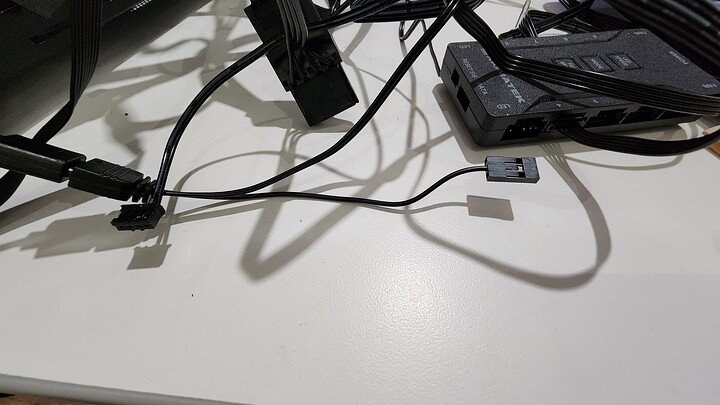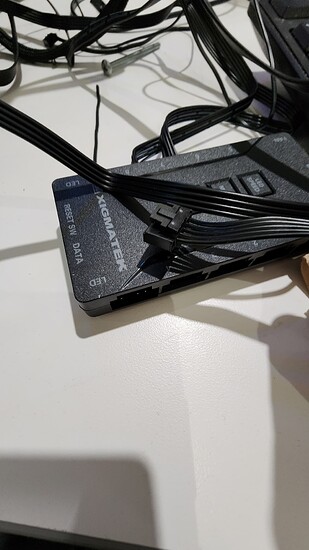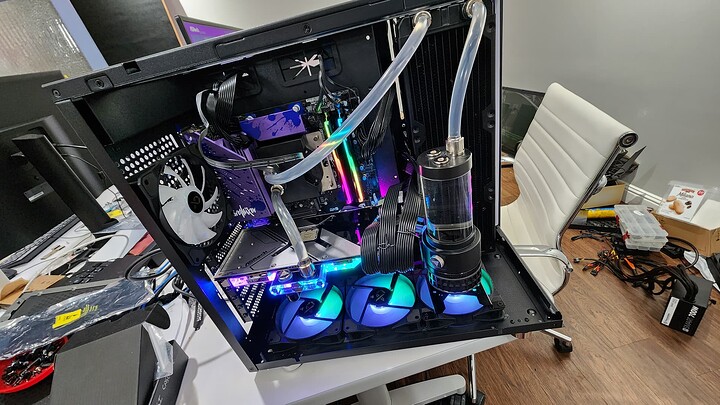What is OpenPleb?
OpenPleb is a non-profit company dedicated to hosting open documentation and royalty-free agreements from computer peripheral companies. It is co-managed by L1Techs and GamersNexus.
What is the Mission of Open Pleb? 
First and foremost: OpenPleb is an organization founded around accessibility. OpenPleb wants to make the hardware you already own as accessible as possible for whatever software you want to run.
Too often in our adventures as hardware-enthusiasts, we’ve run into bottlenecks and barriers centered around proprietary software:
- Why do so many RGB peripheral control protocols and interfaces need an undocumented black box?
- Do we really need a company charging everyone else 3 cents for a combination fan+RGB connector, just because they have the most clout?
- And why does controlling your hardware mean you’re reliant on poorly-written software from 2003?
Unfortunately, many companies do not have a good track record of providing more than a year or two of support for consumer peripherals. For example, the Corsair AX1600 can operate in single rail or multi rail mode but requires software to configure it. This software does not run on modern operating systems.
Rather than ask Corsair to support the AX1600 for 10+ years, we simply wish to document how it works, so that should there be enough desire from end-users, third party control software could be developed.
We believe that there is opportunity for innovation in the RGB control software or sensor monitoring software itself; and that innovation does not come from vendor lock-in. The less lock-in there is the more that companies can compete on the merits of the product and not because you are already in a particular company ecosystem.
The time has come for standards and interoperability.
How OpenPleb Will Work 
Open Pleb will have a three pronged approach to accomplishing it’s mission.
01: OpenPleb Will Provide Documentation
OpenPleb will provide documentation for developers to use to implement software that can control and access hardware features such as RGB control, sensor monitoring, fan control, and peripheral control. And anything else along that line that consumers/end-users may find useful. It is mainly for motherboard features, but can also apply to peripherals like power supplies, rgb controllers, sensor hubs and more.
02: OpenPleb Will Provide Accountability
OpenPleb will provide a public list of companies and products that are currently supplying, or are working to supply documentation, so users can make informed purchasing decisions.
03: OpenPleb Will Provide Community
OpenPleb will also co-ordinate and manage crowd-funded or bounty-funded reverse engineering programs, only when absolutely necessary, to discover and document any undocumented features of motherboards that end-users would find useful. For example, documenting how a platform monitoring chip works or commands that could be sent via SMBus to a Corsair Link device to access and control it.
Frequently Asked Questions 
Does a company have to give up their secrets for this to work?
OpenPleb is not asking that companies give up anything proprietary or secret-sauce. We are asking that if a company provides a new type of RGB or Fan connector that they document how it works in an open fashion and allow anyone, including competing companies, to use that standard. Does company X think they’ve invented a better mousetrap? Fine, but the fine print shouldn’t be that Company X mousetraps only work with ACME brand mice.
Are there any other projects like OpenPleb?
A similar historical case study for this kind of standardization is OpenCompute. OpenCompute created standards for enterprise-level hardware. Instead of HP, Dell, etc one-upping one another with features that attempt to lock-in their customers, sophisticated corporate buyers did an end-run around this product strategy to insist that these computer companies strictly adhere to the standards produced by OpenCompute.
OpenCompute has done many great things including fully open network switch operating systems. Without OpenCompute, we’d probably still be in the hellscape where Dell charged exorbitant yearly licensing fees for “switch operating system” instead of what we can do now with ONIE 2 hardware.
OpenPleb is meant to follow the same basic template but is designed for us “plebs” down here with our consumer grade computer hardware.
Are there any examples of the kind of documentation you want to provide? What about projects that would use it?
In a kind of hap-hazard way the community here has already tripped over a lot of these issues described above. Thankfully, we have a wonderful userbase who are more than happy to document what they’re working on:
- lm-sensors programming for 2017 Threadripper platforms 4
- ln-sensors labeling for gigabyte X570 aorus master 1
- more lm-sensors patches for am4 cpus 4
In addition to posts like these from our forum members, there are lots of other fantastic projects that focus on making things less dependent on manufacturer software. One of the biggest is OpenRGB, which provides open source RGB lighting control.
OpenRGB is a great project: and we aim to go even farther. A lot of the RGB support from OpenRGB has been reverse-engineered. What if there was pressure facing these companies to provide some documentation so that projects like OpenRGB could benefit? The time spent on reverse engineering could instead go to making the software better! Win-win.
Get Involved 
Have you ever experienced a pleb-tier fail?
OpenPleb: Hardware Fails
Do you have a piece of hardware that has inaccessible functionality because the software has been abandoned or doesn’t work anymore? This is a place to gather those pics and stories so that we can convince manufacturers to minimally provide documentation so we can keep using whatever.
Check out the thread above to contribute your horror stories!
Final Note 
This is very much a work in progress and I will do a bit more writing on this in the next few days! We will be the change we want to see. Watch this space.
[Last edited by Krista on 6/8/2023. Mainly to reformat it with ![]() EMOJIS
EMOJIS ![]() ]
]
Example - Xigmatek
Xigmatek has a new aqua line. Bundled with their cases are 7 fans! But these fans have a proprietary connector. The connectors go to a control box which can also be connected to a digital header or Corsair connector either one.
We are recruiting companies to pledge that it is okay for someone else to, for example, make fans that use this connector in case you want to swap the xigmatek hands out for something, literally anything, higher end.
Yes this multipin connector is both fan and RGB.




